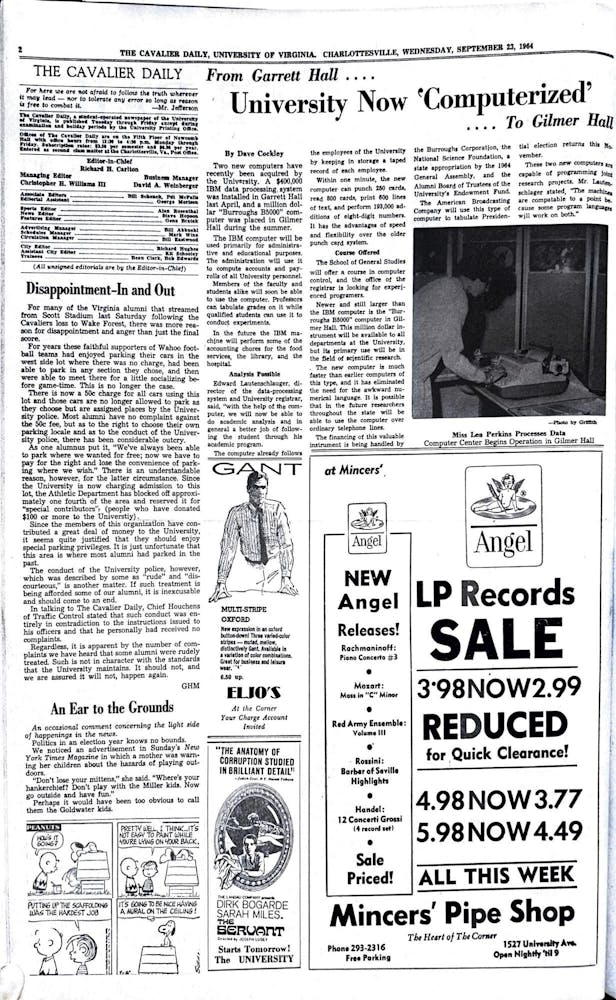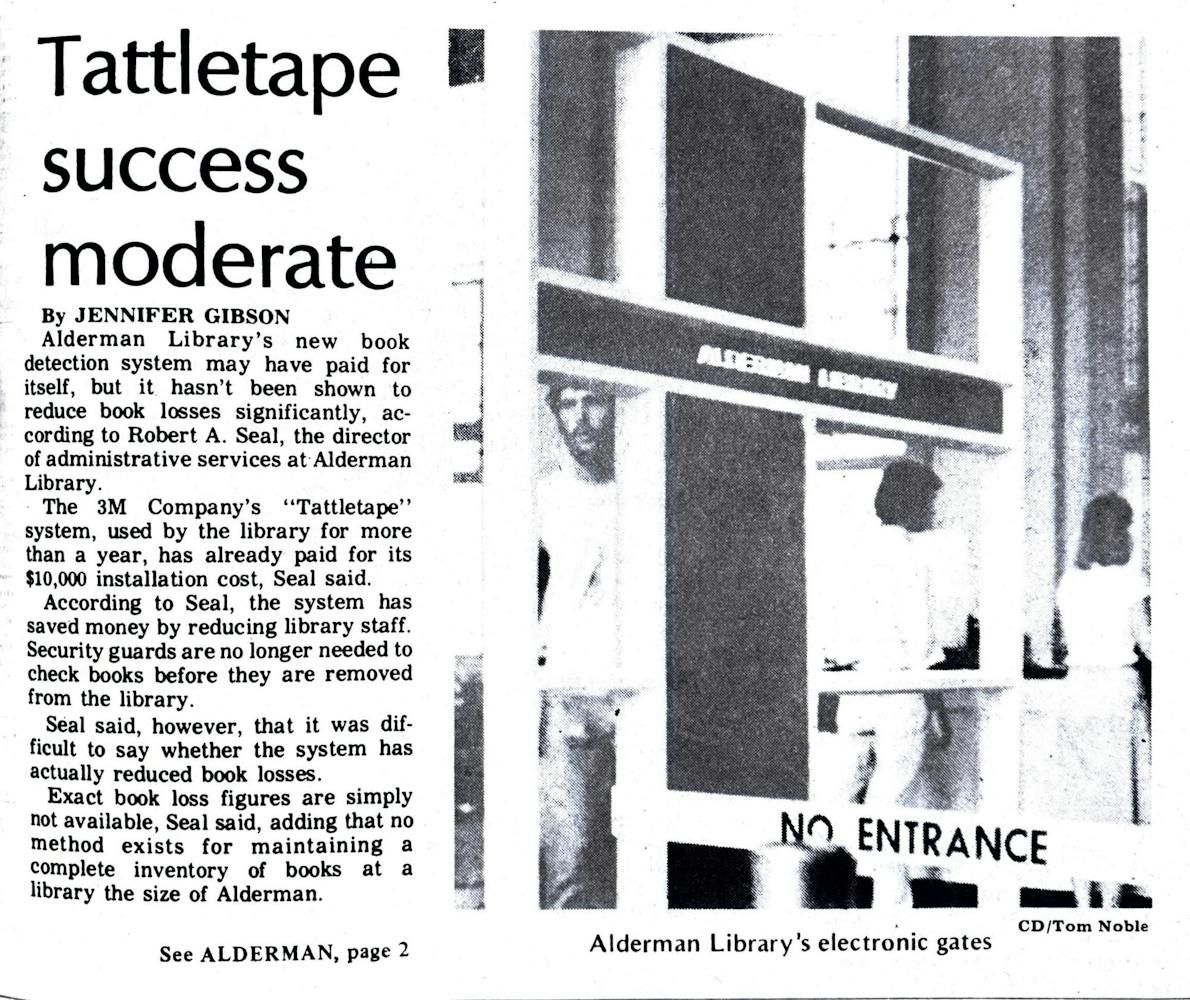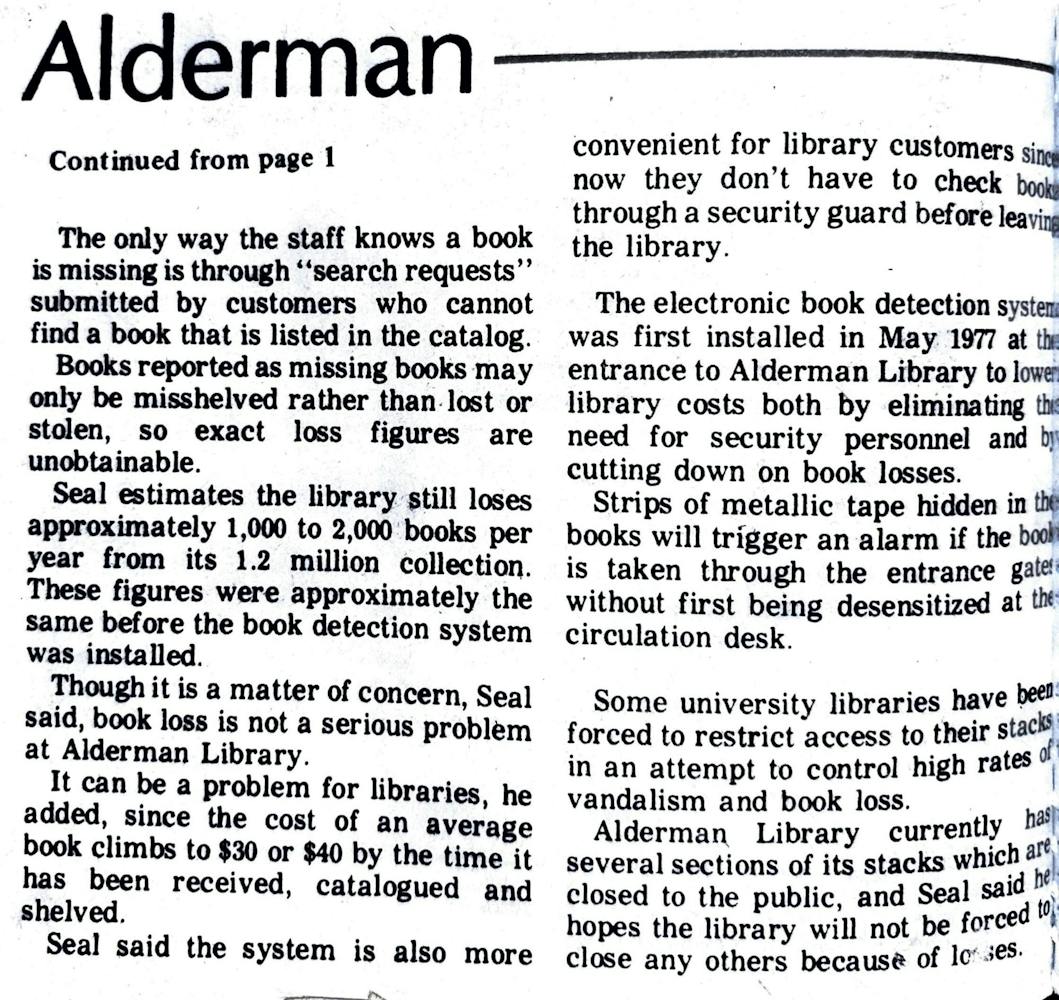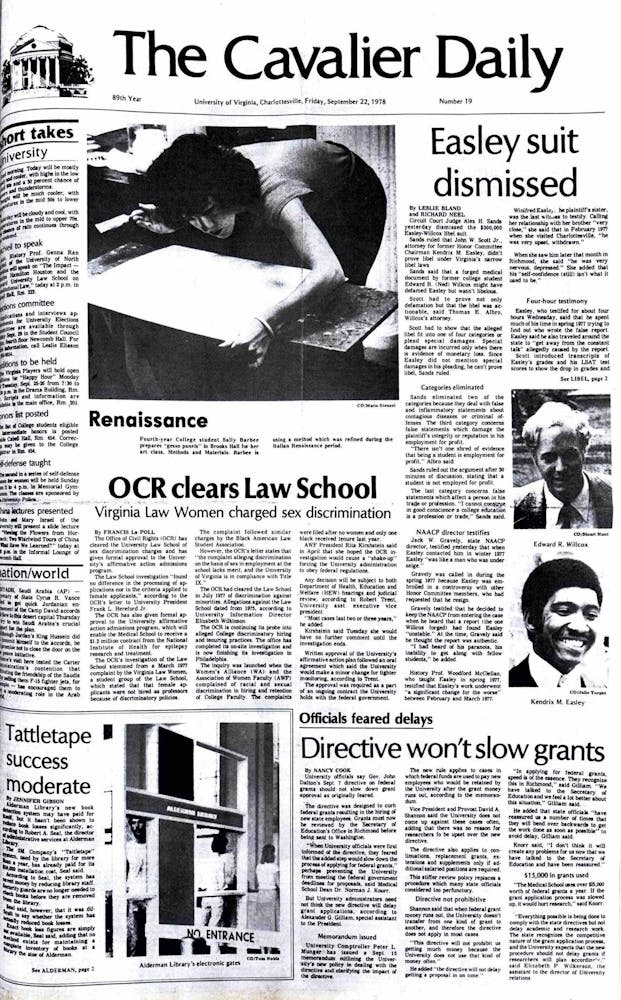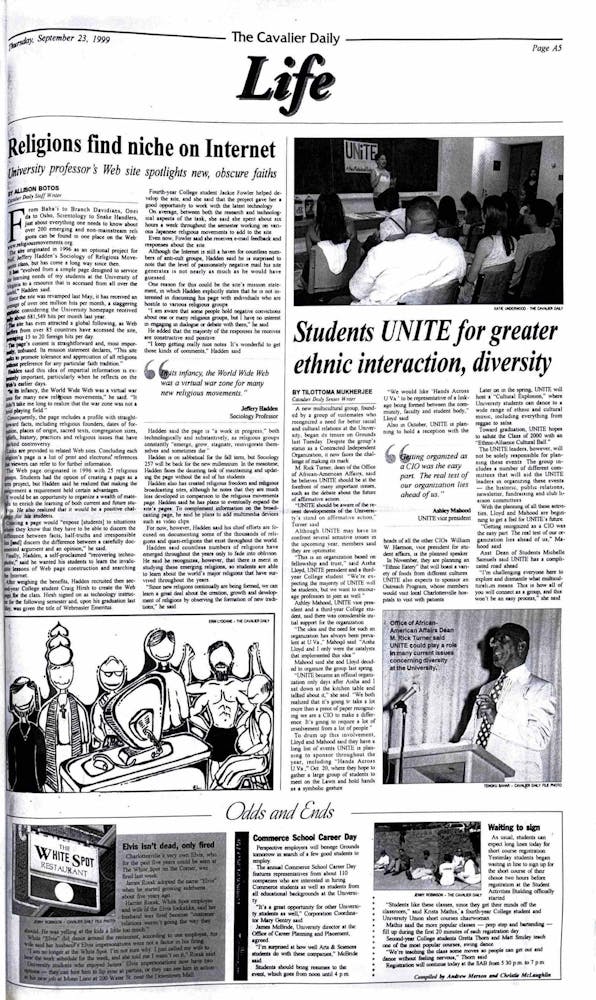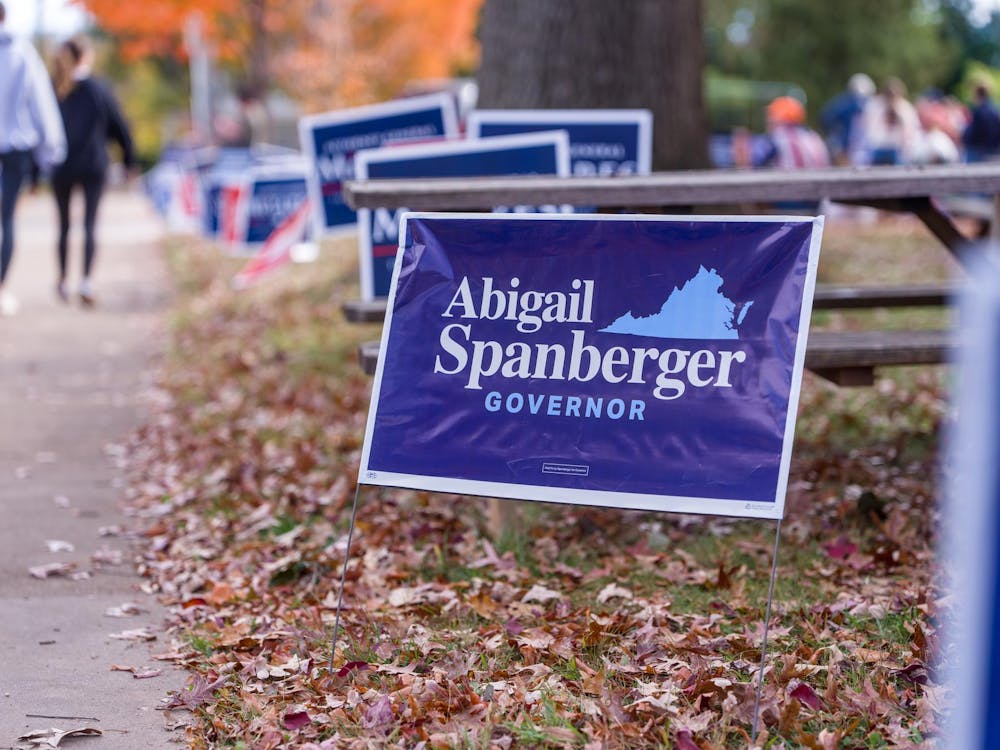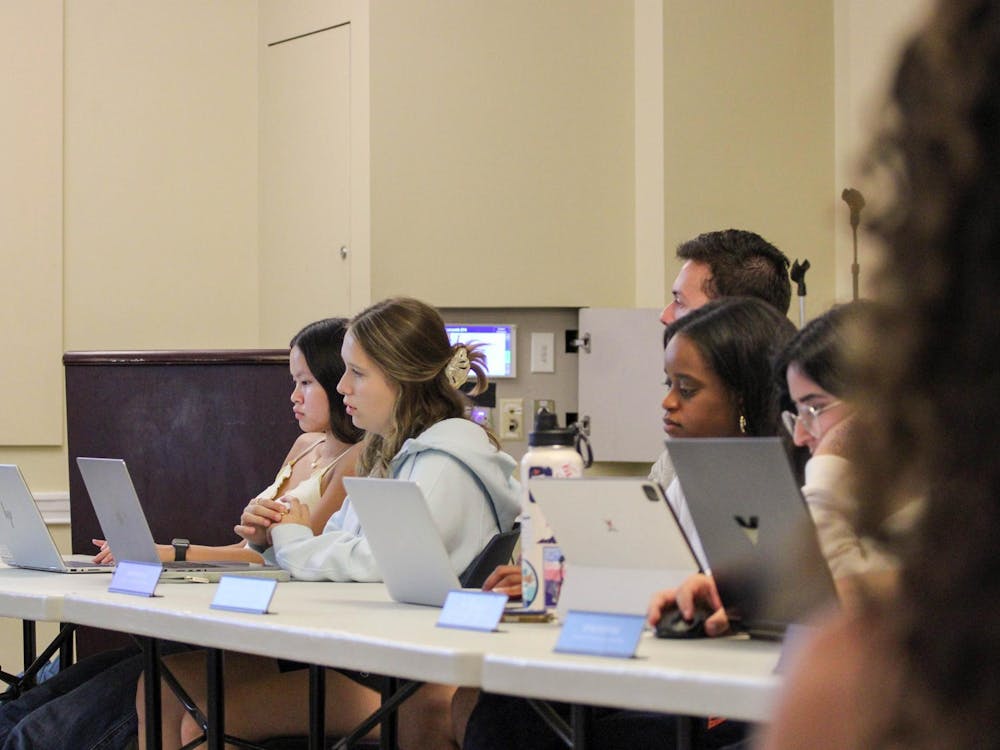With the release of the newest iPhone and the rapid spread of AI tools like ChatGPT, conversations around technology — especially their effects on education — are once again front and center. In this week’s From the Archives, we look back at moments throughout the decades when technology made its mark on life at the University. From the WUVA radio station and the first computers on Grounds to the changing ways of listening to music and digital cheating concerns, each article captures a time when innovation sparked new questions, opportunities and challenges.
1950s
Sept. 29, 1953
“Auditions For WUVA To Be Held This Week”
By No Author
This 1953 article calls for men interested in auditioning to work for the radio station WUVA. Positions include announcing, programming and technical engineering. WUVA features a wide range of programs, from daily news to a collaborative jazz show.
1960s
September 23. 1964
“University Now ‘Computerized’”
By Dave Cockley
Photos by Griffith
Two new computers were installed in Garret and Gilmer Hall, costing $400,000 and $1,000,000, respectively. The computers were to be used by professors and administrators to make tabulating grades and computing payrolls more efficient.
1970s
Sept. 22, 1978
“Tattletape success moderate”
By Jennifer Gibson
Photos by Tom Noble
Alderman’s new book detection system was not very effective in cutting book losses for the library. However, money was saved by reducing library staff and eliminating the need for security guards. The system was also more convenient and time-efficient for library customers.
1980s
September 25, 1986
“Computer issue studied”
By Terri Theiss
Photos by Patrick Martin
Since the University started offering computer courses in the 1970s, cheating in computer programming had become a serious problem. The Honor Committee noticed an immense increase in computer-related cheating incidents and was still navigating the best response to the situation.
1990s
Sept. 23, 1999
“Religions find niche on Internet”
By Allison Botos
Professor Jeffery Hadden’s website on religious movements gained incredible traction from around the world. The website initially began as a project for his sociology class, but exploded into a site that championed religious tolerance and received over one million hits per month.
2000s
September 29, 2004
“How do you play it?”
By Defne Gunay
Photos by Brian Gawalt
With the advent of the iPod in 2001, students discussed their go-to means of listening to music. While some students preferred “the rave” of the iPod, others still found themselves drawn to CDs.
From the Archives: Technology Advancements
This week: Looking back on how innovative technology has transformed Grounds throughout the decades



